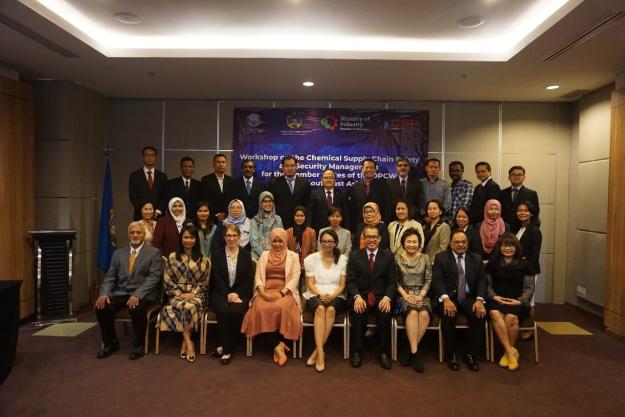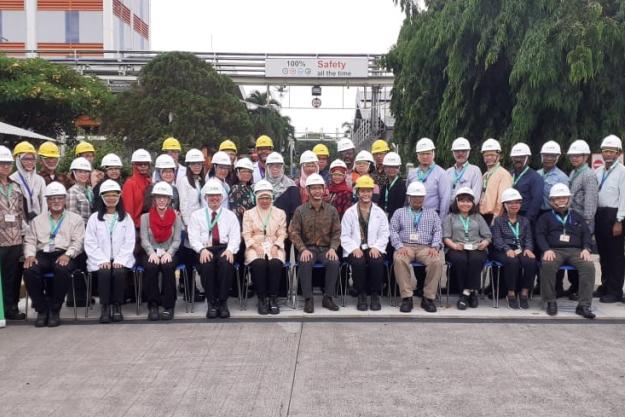
THE HAGUE, Netherlands — 5 December 2019 — Experts from Southeast Asia and the United States of America shared key insights and skills during a workshop on Chemical Supply Chain Safety and Security Management held in Bogor, Indonesia from 19 to 21 November 2019.
In her opening remarks, Director of International Security and Disarmament, Ministry of Foreign Affairs of Indonesia, Ms Grata Endah Werdaningtyas, reiterated Indonesia’s commitment to the effective implementation of the Chemical Weapons Convention and the need to strengthen collaboration within the region to support States Parties peaceful uses of chemistry.
Dr Allison Tolbert, Senior Program Advisor, U.S. Department of State, underlined how the U.S. Chemical Security Program assists countries to build networks and raise awareness of relevant stakeholders on chemical security management.
Ms Halimatussaadiah Mat Som, Programme Officer at the International Cooperation Branch of Organisation for the Prohibition of Chemical Weapons (OPCW) stressed that the OPCW encourages collaboration and partnership between the multitude of key stakeholders to promote integrated chemicals management.
Workshop participants examined various components of chemical safety and security management, including relevant treaty implementation challenges; threat assessments and security management; and efforts to build safety and security culture along the chemical supply chain. Participants also visited a PT BASF chemical plant to learn about practical applications of integrated chemical management.
The workshop, organised by the OPCW in collaboration with Indonesia’s Ministry of Foreign Affairs, with co-funding from the U.S. Chemical Security Program, was attended by 33 participants from Indonesia, Malaysia, Philippines, Thailand and the United States of America.

Background
As the implementing body for the Chemical Weapons Convention, the OPCW, with its 193 Member States, oversees the global endeavour to permanently eliminate chemical weapons. Since the Convention’s entry into force in 1997, it is the most successful disarmament treaty eliminating an entire class of weapons of mass destruction.
Over 97% of all chemical weapon stockpiles declared by possessor States have been destroyed under OPCW verification. For its extensive efforts in eliminating chemical weapons, the OPCW received the 2013 Nobel Peace Prize.
